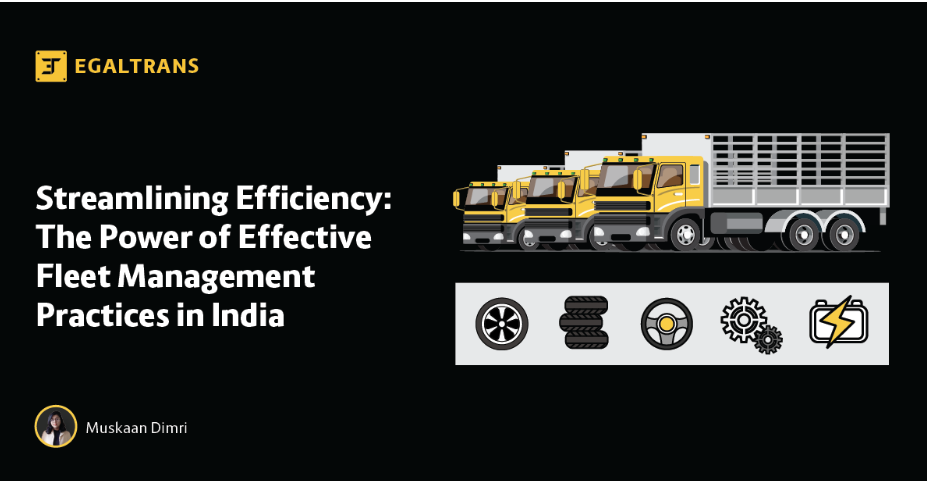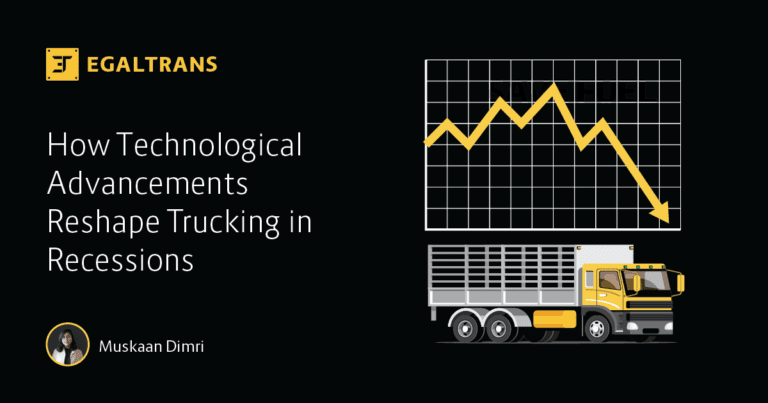In today’s fast-paced business world, where transportation plays a pivotal role in meeting customer demands and maintaining a competitive edge, effective fleet management practices have become more critical than ever. Whether it’s a delivery company, a logistics provider, or a service-based organization, efficiently managing a fleet of vehicles can significantly impact operational efficiency, cost savings, and customer satisfaction. By leveraging advanced technologies and implementing smart strategies, businesses can unlock a multitude of benefits. In this article, we delve into the realm of fleet management practices, exploring how companies can streamline their operations, optimize resource utilization, enhance safety and compliance, and ultimately drive success in an increasingly dynamic market.
What is Fleet Management
Fleet management is a comprehensive approach to overseeing and coordinating a company’s fleet of vehicles. It involves a range of activities and strategies aimed at optimizing the efficiency, safety, and cost-effectiveness of the fleet operations. Fleet management encompasses various elements, including vehicle acquisition, maintenance and repairs, fuel management, driver safety and training, route planning, and compliance with regulatory requirements. At its core, fleet management is about maximizing the utilization of the fleet assets while minimizing expenses and risks associated with vehicle ownership and operation. It involves implementing systems and technologies that enable businesses to gain real-time visibility into their fleet, track vehicle locations, monitor fuel consumption, analyze driver behavior, and streamline administrative tasks. By capturing and analyzing relevant data, fleet managers can make informed decisions, identify areas for improvement, and implement strategies to optimize performance.
Successful fleet management practices involve a holistic approach that considers the entire lifecycle of the fleet vehicles. From the initial selection and procurement of vehicles that align with the organization’s requirements, to ongoing maintenance and monitoring, fleet managers are responsible for ensuring that the vehicles remain in optimal condition and deliver reliable performance. Additionally, effective fleet management incorporates driver training programs to promote safe driving practices and compliance with regulations, as well as the use of advanced technologies to automate processes and improve overall operational efficiency.
Duties of a Fleet Manager
As a fleet manager, one is to be responsible for a range of tasks to ensure the efficient and effective operation of your fleet. Here are some common roles of a fleet manager:
- Vehicle Procurement and Disposal: Fleet managers are involved in the acquisition and disposal of fleet vehicles. This includes researching and selecting suitable vehicles, negotiating purchases or leases, managing vehicle registrations, and coordinating the sale or trade-in of vehicles at the end of their lifecycle.
- Fleet Maintenance and Repairs: Ensuring the proper maintenance and repair of fleet vehicles is a key responsibility. This involves developing and implementing preventive maintenance schedules, coordinating vehicle inspections, managing service and repair appointments, and overseeing compliance with maintenance requirements
- Driver Management and Training: Fleet managers are responsible for hiring, training, and managing drivers. They oversee driver onboarding processes, ensure compliance with licensing and certification requirements, conduct driver performance evaluations, and provide ongoing training to improve driver skills and safety.
- Route Planning and Optimization: Fleet managers optimize vehicle routes to maximize efficiency and reduce costs. This involves analyzing routes, considering factors such as traffic, distance, and delivery timeframes, and using software tools to develop optimized routes for the fleet.
- Safety and Compliance: Fleet managers prioritize safety and compliance with regulations. They develop and enforce safety policies and procedures, monitor driver behavior, manage driver hours-of-service and logbooks, oversee vehicle inspections, and ensure compliance with local, state, and federal regulations.
- Data Analysis and Reporting: Fleet managers utilize fleet management software to collect and analyze data on vehicle performance, fuel consumption, maintenance costs, driver behavior, and other metrics. They generate reports and analyze trends to make informed decisions and identify areas for improvement.
- Budgeting and Cost Control: Fleet managers are responsible for developing and managing fleet budgets. They monitor expenses, identify cost-saving opportunities, negotiate contracts with service providers, and implement strategies to control and reduce fleet costs.
- Relationship Management: Fleet managers collaborate with various stakeholders, including drivers, maintenance providers, fuel suppliers, and vehicle dealerships. They maintain strong relationships with these partners to ensure smooth fleet operations and address any issues that may arise.
These tasks require effective communication, organizational skills, attention to detail, and the ability to manage multiple priorities to ensure a well-functioning and cost-effective fleet.
Fleet Management Software
Fleet management software is a powerful tool that revolutionizes the way businesses manage their fleets. This software provides a centralized platform for fleet managers to efficiently oversee and optimize various aspects of fleet operations. With features such as GPS tracking, vehicle monitoring, maintenance scheduling, fuel management, and driver performance tracking, fleet management software offers comprehensive insights into fleet performance and enables data-driven decision making. It streamlines administrative tasks, automates processes, and enhances overall efficiency, resulting in reduced costs, improved productivity, and enhanced customer satisfaction. By leveraging the capabilities of fleet management software, businesses can achieve better fleet utilization, proactive maintenance, optimized routing, and compliance with regulatory requirements.
Types of Fleet Management Software:
- GPS Tracking Systems: These software solutions use GPS technology to track and monitor the location of vehicles in real-time. They provide features like route optimization, geofencing, and vehicle diagnostics.
- Maintenance Management Systems: These systems help manage vehicle maintenance schedules, track repair history, and automate maintenance tasks. They send alerts for routine maintenance, manage work orders, and track parts inventory.
- Fuel Management Systems: Fuel management software helps monitor fuel consumption, detect fuel theft or fraud, and optimize fuel usage. It provides insights into fuel efficiency, tracks fuel transactions, and helps in controlling costs.
These different types of softwares empowers fleet managers to effectively monitor and control their fleets, enabling them to make informed decisions that drive success and competitiveness in today’s dynamic business environment.
Role of Fleet Management System in Fuel Cost Reduction
A fleet management system plays a crucial role in reducing fuel costs for organizations that rely on a fleet of vehicles for their operations. By implementing an effective fleet management system, companies can gain better control and visibility over their fuel consumption, leading to significant cost savings.
One of the primary ways in which a fleet management system helps reduce fuel costs is through optimized route planning and vehicle scheduling. By analyzing factors such as distance, traffic conditions, and vehicle capabilities, the system can identify the most efficient routes and minimize unnecessary mileage. This results in reduced fuel consumption and lower associated costs. Additionally, fleet management systems often include features such as real-time monitoring of vehicle performance and driver behavior. This allows companies to identify inefficient driving practices, such as excessive idling, speeding, or aggressive acceleration, which can significantly impact fuel efficiency. By addressing these behaviors through driver training or feedback, companies can improve fuel efficiency and reduce overall fuel costs.
Furthermore, a fleet management system enables companies to track fuel consumption on a vehicle-by-vehicle basis. By monitoring fuel usage patterns and identifying outliers, companies can detect potential fuel theft or unauthorized usage, ensuring that fuel is used solely for business purposes. Overall, the integration of a fleet management system provides organizations with the tools and insights needed to optimize fuel usage, minimize wastage, and ultimately reduce fuel costs.
Advantages of Fleet Management System
Implementing a fleet management system offers several advantages for businesses that rely on a fleet of vehicles. Here are some key advantages:
- Improved Efficiency: A fleet management system streamlines operations and enhances overall efficiency. It provides real-time insights into vehicle location, status, and performance, allowing fleet managers to optimize routes, minimize idle time, and reduce fuel consumption. Efficient planning and scheduling of vehicles result in better resource allocation and improved productivity.
- Enhanced Safety and Security: Fleet management systems often include GPS tracking and telematics capabilities, enabling fleet managers to monitor vehicles and driver behavior in real-time. This promotes safer driving practices, reduces the risk of accidents, and enhances the security of fleet assets. In case of theft or unauthorized vehicle use, the system can quickly track and recover the vehicle.
- Cost Reduction: By optimizing routes, monitoring fuel consumption, and reducing unnecessary idling, a fleet management system helps in cost reduction. It also aids in proactive vehicle maintenance, preventing costly breakdowns and repairs. Additionally, the system provides data-driven insights to identify areas of inefficiency, allowing businesses to make informed decisions to minimize operational expenses.
- Compliance with Regulations: Fleet management systems help businesses maintain compliance with regulatory requirements. They enable the monitoring and recording of driver hours-of-service, vehicle inspections, and adherence to environmental standards. By automating compliance processes, businesses can avoid penalties, fines, and legal complications.
- Customer Service and Satisfaction: With a fleet management system, businesses can provide accurate and reliable information to customers regarding delivery or service schedules. Real-time tracking capabilities allow businesses to proactively manage delays or unexpected situations, ensuring better customer service and satisfaction.
Overall, a fleet management system empowers businesses to operate their fleets more efficiently, reduce costs, enhance safety, and make data-driven decisions. It is a valuable tool for businesses of all sizes that rely on fleet operations.
What are the Future Trends in this Technology Space
Several new technologies are emerging in the field of fleet management, revolutionizing how companies monitor and optimize their fleet operations. Here are some notable advancements:
- Telematics and GPS Tracking: Telematics systems combine GPS technology with onboard diagnostics to provide real-time data on vehicle location, speed, fuel consumption, and driver behavior. This technology enables fleet managers to track vehicles, monitor performance, and analyze data to make informed decisions regarding route optimization, fuel efficiency, and maintenance planning.
- Cloud-Based Fleet Management Software: Cloud-based fleet management platforms offer a centralized and accessible solution for managing fleet operations. These platforms allow fleet managers to track vehicle information, schedule maintenance, monitor driver performance, and generate reports from anywhere with an internet connection. Cloud-based systems also facilitate seamless integration with other business applications and enable data sharing between departments.
- Mobile Applications: Mobile applications are increasingly used in fleet management, providing on-the-go access to important information and functionality. Fleet managers and drivers can use mobile apps to track vehicles, receive notifications, complete checklists, and communicate in real-time. These apps enhance efficiency and communication, enabling faster decision-making and streamlined workflows.
- Electric Vehicle (EV) Management Solutions: As companies transition to electric vehicles, fleet management solutions are evolving to support the unique needs of EV fleets. These solutions include features such as charging station management, range optimization, and battery health monitoring. EV management solutions help fleet managers maximize the utilization of electric vehicles, plan charging strategies, and integrate EVs into existing operations seamlessly.
- Blockchain Technology: Blockchain technology is finding applications in fleet management to enhance security, transparency, and efficiency. It can be used to securely store and share vehicle data, maintenance records, and transactional information. Blockchain can streamline processes such as payments, fueling, and vehicle registration by providing a tamper-proof and decentralized record-keeping system.
These new technologies are reshaping the way fleet management is conducted, enabling companies to optimize their operations, improve efficiency, and make data-driven decisions. Implementing these technologies can lead to cost savings, enhanced safety, and better overall performance of fleet operations.






